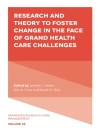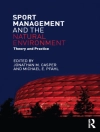In this ground-breaking contribution to the study of tourism and languages, Alison Phipps examines what happens when tourists learn to speak other languages. From ordering a coffee to following directions she argues for a new perception of the relationship between tourism and languages from one based on the acquisition of basic, functional skills to one which sustains and even strengthens intercultural dialogue. The twelve chapters comprising this book tell stories of the experience of learning and speaking tourist languages. Drawing on a range of disciplines Alison Phipps takes the reader on a journey through risk, way finding, mistakes, laughter, conversations and the imagination. She provides rich descriptions of the world of language learning which has remained invisible to mainstream studies of language education, existing as it does on the margins of educational life. She shows how tourism is shaped by the learning experiences of everyday life. Languages, she argues passionately, fundamentally change the nature of perception, dwelling and relationships to other people and the world. This book will be essential reading for all those interested in tourism studies and in modern languages education. It is a timely study, coming at time of crisis in languages, as English exerts its power as a world language and as a dominant language of tourism. Learning the Arts of Linguistic Survival: Languaging, Tourism, Life will also be of interest to anthropologists, linguists, geographers, sociologists and those studying education.
Tabela de Conteúdo
Acknowledgements
Introduction
1. Languages, Tourism and Life
2. Educating Tourists
3. Risks
4. Way Finding
5. Pronunciation
6. Conversation
7. Games
8. Rehearsing Speech
9. Breaking English
10. Tourist Language Learners
11. Surviving
Afterword
Bibliography
Sobre o autor
Alison Phipps holds the UNESCO Chair in Refugee Integration through Languages and the Arts at the University of Glasgow, where she is also professor of languages and intercultural studies and co-convener of Glasgow Refugee, Asylum and Migration Network (GRAMNET).












